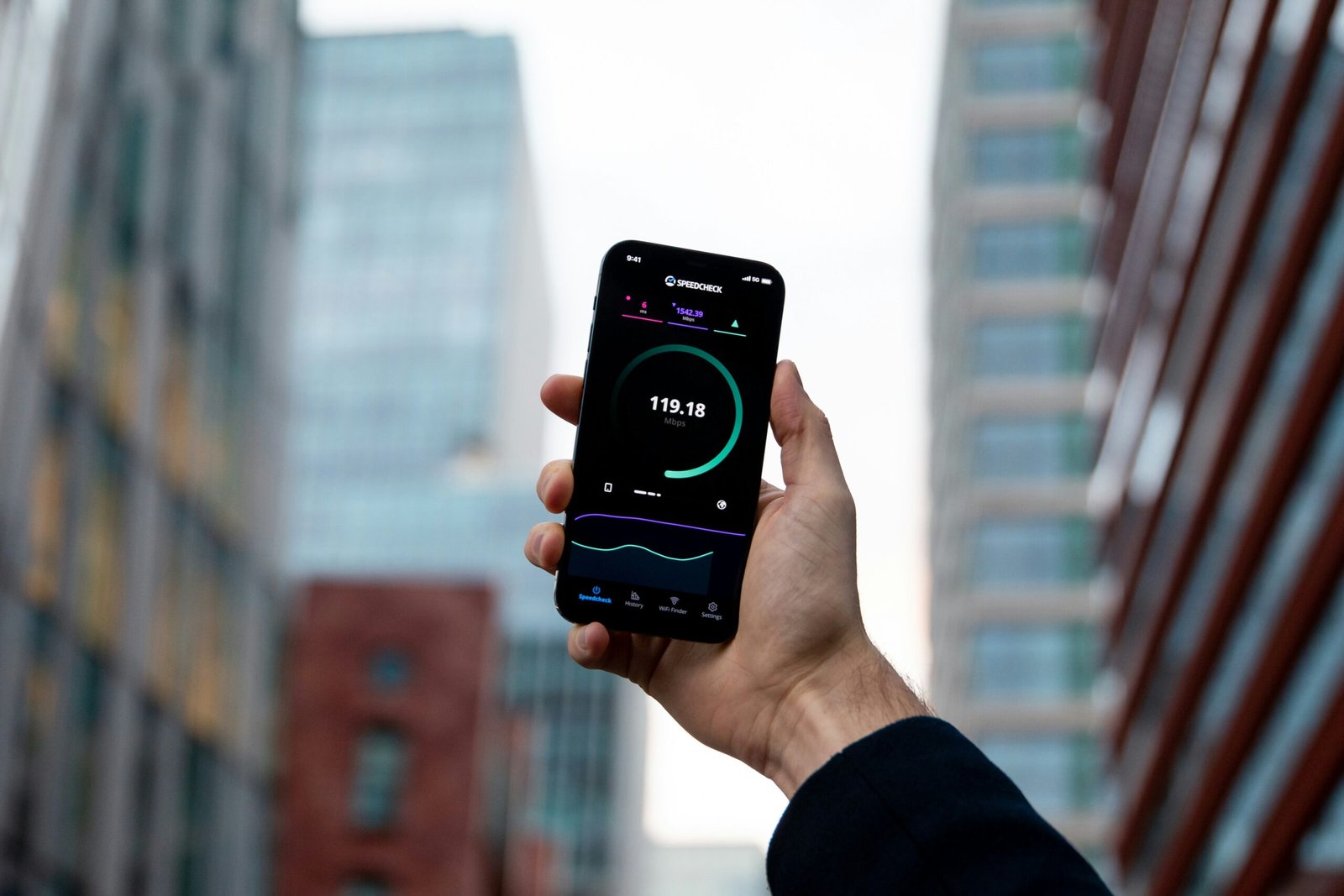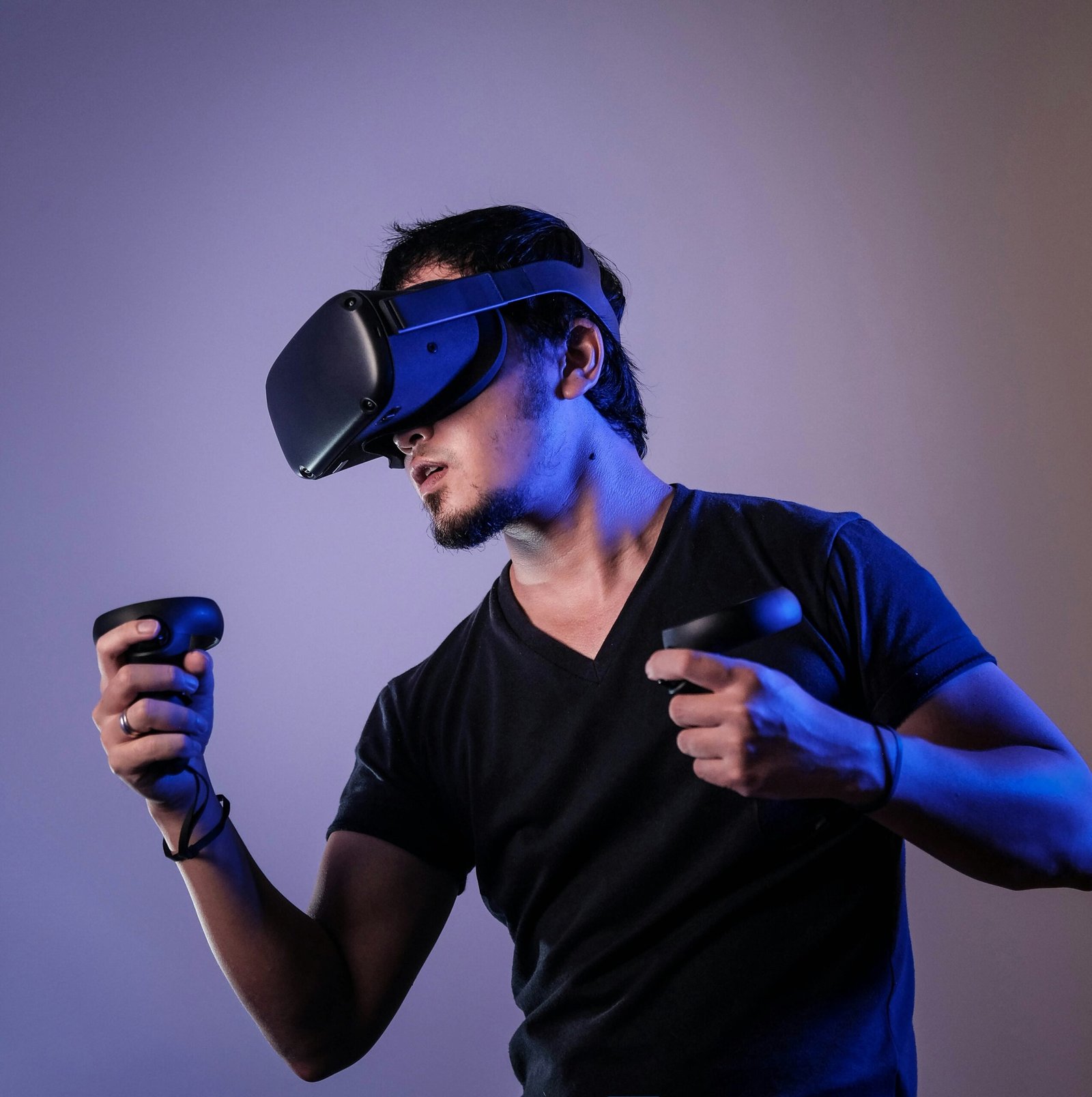One of the most anticipated technologies in 2024 is the widespread adoption of 5G networks. With its lightning-fast speeds and low latency, 5G will pave the way for a new era of connectivity. Imagine downloading an entire movie in a matter of seconds or experiencing seamless video calls without any lag.
Another area that is set to undergo a major transformation is artificial intelligence (AI). In 2024, AI will become even more integrated into our daily lives, revolutionizing industries such as healthcare, finance, and transportation. AI-powered virtual assistants will become smarter and more intuitive, helping us manage our schedules, answer our questions, and even anticipate our needs.
Virtual reality (VR) and augmented reality (AR) will also continue to gain traction in 2024. These immersive technologies will not only revolutionize the gaming industry but also find applications in education, training, and entertainment. Imagine being able to explore ancient civilizations or visit far-flung destinations from the comfort of your own home.
As technology continues to evolve, so does the way we interact with it. In 2024, we can expect to see a rise in wearable technology that seamlessly integrates into our daily lives. From smartwatches that monitor our health and fitness to smart glasses that provide us with real-time information, these wearables will become an essential part of our everyday routines.
The year 2024 will also witness advancements in the field of renewable energy. With a growing concern for the environment, scientists and engineers are working tirelessly to develop cleaner and more sustainable sources of energy. From solar panels that are more efficient and affordable to wind turbines that harness the power of the wind, these innovations will play a crucial role in reducing our carbon footprint and ensuring a greener future.
Lastly, the convergence of technology and healthcare will continue to shape the future in 2024. From telemedicine that allows patients to consult with doctors remotely to wearable devices that track our health in real-time, technology will enable us to take control of our well-being like never before. The integration of big data and machine learning algorithms will also revolutionize medical research, leading to more precise diagnoses and personalized treatment plans.
In conclusion, the technological landscape in 2024 promises to be a fascinating one. With advancements in connectivity, artificial intelligence, virtual reality, wearable technology, renewable energy, and healthcare, our world is on the brink of a technological revolution. As we embrace these innovations, it is important to remember that technology is a tool that can enhance our lives and create a better future. It is up to us to harness its potential and ensure that it is used for the benefit of all.
In addition to healthcare, transportation, and finance, AI will also have a profound impact on education. With the advent of AI-powered learning platforms, personalized education will become more accessible and effective. These platforms will analyze students’ individual learning styles and preferences, tailoring content and teaching methods to meet their specific needs. This will not only improve learning outcomes but also reduce the burden on educators by automating administrative tasks such as grading and lesson planning.
Furthermore, AI will revolutionize the entertainment industry by creating immersive virtual reality experiences. With AI algorithms that can generate realistic graphics and simulate human-like interactions, virtual reality will become more lifelike and engaging. This will open up new possibilities for gaming, storytelling, and even training simulations.
Another area where AI will make a significant impact is in environmental sustainability. By harnessing the power of AI, we can develop more efficient energy systems, optimize resource allocation, and predict natural disasters with greater accuracy. For example, AI algorithms can analyze weather patterns and historical data to provide early warnings for hurricanes, earthquakes, and other natural disasters. This will enable communities to take proactive measures to mitigate the impact and save lives.
As AI continues to advance, ethical considerations become increasingly important. It is crucial to ensure that AI systems are developed and used responsibly, without bias or discrimination. Transparency and accountability in AI decision-making processes are essential to build trust and prevent unintended consequences.
In conclusion, the rise of AI will bring about significant changes in various sectors, including healthcare, transportation, finance, education, entertainment, and environmental sustainability. While the potential benefits are immense, it is essential to navigate the ethical and societal implications carefully. With responsible development and deployment, AI has the power to transform our lives for the better.
Virtual and Augmented Reality (VR orAR)
Virtual and Augmented Reality technologies have been steadily gaining momentum, and in 2024, they will take a giant leap forward. VR and AR will not just be limited to gaming and entertainment but will find applications in various industries, including education, healthcare, and architecture.
In education, VR will revolutionize the way students learn by creating immersive experiences. Imagine students being able to explore ancient civilizations or witness scientific experiments firsthand, all from the comfort of their classrooms. AR, on the other hand, will enhance the learning experience by overlaying digital information onto the real world. Students will be able to visualize complex concepts and interact with virtual objects, making learning more engaging and interactive.
In healthcare, VR will be used for training medical professionals. Surgeons will be able to practice complex procedures in a virtual environment, minimizing the risk during actual surgeries. VR will also help in treating patients with phobias and anxiety disorders by exposing them to virtual environments that gradually desensitize them to their fears.
Architects and designers will benefit from VR and AR technologies as well. VR will allow them to create virtual walkthroughs of their designs, giving clients a realistic preview of the final product. AR will enable architects to overlay digital models onto physical spaces, making it easier to visualize and make changes in real-time.
Moreover, the integration of VR and AR in the construction industry will streamline the design and construction process. Architects and engineers will be able to collaborate in a virtual environment, making it easier to communicate and make decisions. Construction workers will also benefit from wearing AR glasses that provide real-time instructions and information, improving efficiency and reducing errors.
In the entertainment industry, VR and AR will continue to push boundaries, offering users immersive experiences like never before. From virtual concerts to interactive gaming experiences, the possibilities are endless. VR and AR will blur the line between the physical and digital worlds, creating a new form of entertainment that captivates audiences.
Furthermore, VR and AR will have a significant impact on the tourism industry. Tourists will be able to explore destinations virtually before deciding to travel, allowing them to make informed decisions. Once at the destination, AR will enhance the experience by providing interactive guides, historical information, and even virtual tours of landmarks.
Overall, the era of virtual and augmented reality is set to revolutionize various industries, transforming the way we learn, work, and entertain ourselves. With advancements in technology and increased accessibility, VR and AR will become an integral part of our daily lives, opening up new possibilities and experiences that were once unimaginable.
In addition to these advancements, smartphones and laptops will also see improvements in their camera capabilities. Smartphone cameras will continue to evolve, with higher megapixel counts, improved low-light performance, and enhanced zoom capabilities. Users will be able to capture professional-quality photos and videos on their smartphones, eliminating the need for a separate camera.
Laptops, on the other hand, will see improvements in their webcam technology, as remote work and video conferencing become more prevalent. High-definition webcams with advanced noise-canceling capabilities will allow for clear and crisp video calls, making remote collaboration more seamless and productive.
Another area where smartphones and laptops will continue to evolve is in their security features. With the increasing amount of personal and sensitive data stored on these devices, security will be a top priority. Biometric authentication methods, such as facial recognition and fingerprint scanning, will become more advanced and secure, ensuring that only authorized users can access the devices.
Furthermore, smartphones and laptops will also become more environmentally friendly. Manufacturers will prioritize sustainability in their designs, using recyclable materials and reducing the use of harmful substances. Energy-efficient components and software optimizations will also contribute to longer battery life and reduced power consumption.
Overall, the evolution of smartphones and laptops in 2024 will bring about exciting advancements in AI, 5G technology, camera capabilities, security features, and environmental sustainability. These devices will continue to enhance our lives, enabling us to stay connected, productive, and entertained in an increasingly digital world.








